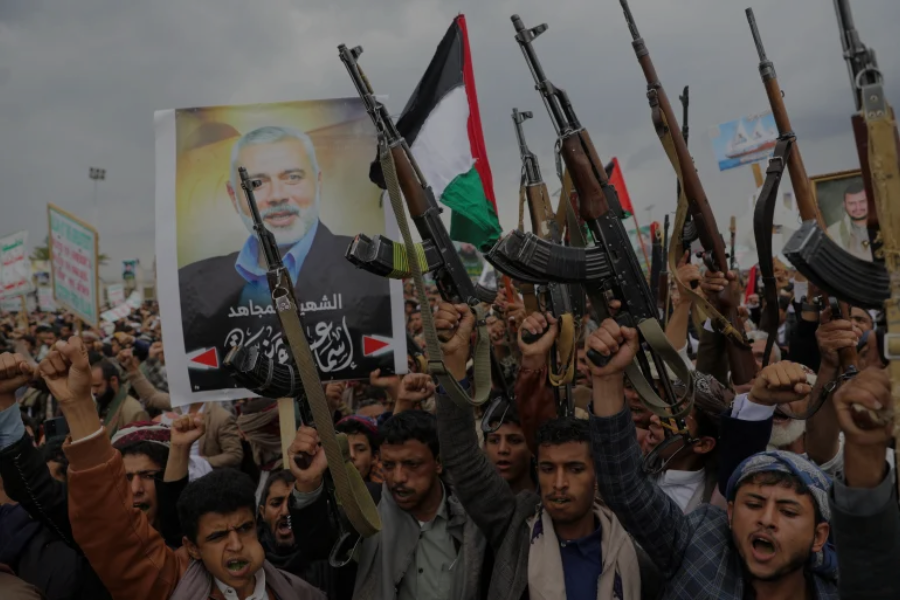Iran could take some time to reciprocate an act of aggression against Israel, the IRGC said in a statement following the assassination of Hamas leader Ismail Haniyeh in Tehran. Virtually addressing the nation on Tuesday, the IRGC spokesman Ali Mohammad Naeini hinted at the likelihood of a response being averted but said a response would come in due course.
Contrary to the preceding statement, Naeini said that time is on Iran’s side, and it might take a long time for Israel to retaliate.
The political instability in the Middle East is on the increase due to recent developments such as the assassination of top officials in both Hezbollah and Hamas. A month ago, the head of Hezbollah’s security, Fuad Shukr, was shot in Beirut, and the other day, Haniyeh was assassinated in Tehran. Although Israel admitted responsibility for Shukr’s killing, it has yet to say anything about Haniyeh’s assassination, although Iran and affiliates, including Hezbollah in Lebanon, have blamed Israel for both murders.
Naeini reiterated that the reaction of Iran will be different, pointing out that earlier this year, Iran targeted missiles and drones after the allegedly Israeli airstrike on the Iranian consulate in Damascus. Unfortunately, the aim of most of those strikes was not attained since many of them were seen off by the Libyan armed forces. But Naeini said that the following revenge would be more rational and accurate.
“Our commanders know how to punish the enemy effectively and are not prone to hasty action,” Naeini added when presenting that Iran will enjoy organization and purpose when it acts back.
People from the region and worldwide are observing the intensity of the conflict and its impacts.
Naeini’s statements come against the backdrop of escalating tensions in the Middle East, where Iran and the Israelis have continued to carry out attacks and counter-attacks. Iran’s threat of vengeance is perceived not only as essentially to the elimination of Haniyeh but also as a challenge to Israel and its supporters to ‘show it what you got’ in terms of Iran’s capacity and determination. This is consistent with the IRGC’s character of a gradual buildup to a moment when it can achieve maximum strategic effect and with Iran’s apparent caution as part of its retaliatory calculus.
Such a situation builds more complexity and risk to a volatile Middle East region in a way that tries to have Iran retaliate only after waiting a long time. Such analysts’ opinion signals that the situation might remain tense in the region for a long time, and both Israel and Iran are getting ready for it. With Iran getting closer to its regional friends, such as Hezbollah of Lebanon, the probability of an escalated conflict, given that there are different actors and fronts, also rattles the stability of the region as a whole.















